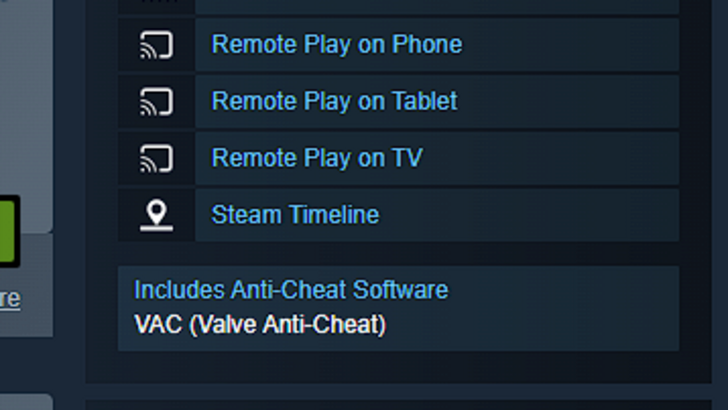 Steam enhances its platform transparency by requiring developers to disclose the use of kernel-mode anti-cheat in their games. This move addresses both developer needs and player concerns regarding anti-cheat software.
Steam enhances its platform transparency by requiring developers to disclose the use of kernel-mode anti-cheat in their games. This move addresses both developer needs and player concerns regarding anti-cheat software.
Steam's New Anti-Cheat Disclosure Feature
Mandatory Kernel-Mode Anti-Cheat Disclosure
 Valve's recent Steamworks API update introduces a new feature allowing developers to specify the anti-cheat systems employed in their games. While disclosure for non-kernel-based anti-cheat remains optional, kernel-mode anti-cheat implementation is now mandatory. This addresses growing player anxieties about the potential intrusiveness of such systems.
Valve's recent Steamworks API update introduces a new feature allowing developers to specify the anti-cheat systems employed in their games. While disclosure for non-kernel-based anti-cheat remains optional, kernel-mode anti-cheat implementation is now mandatory. This addresses growing player anxieties about the potential intrusiveness of such systems.
 Kernel-mode anti-cheat, which directly monitors system processes for malicious activity, has been a source of contention. Unlike traditional methods focusing on in-game behavior, kernel-mode access to low-level system data raises concerns about performance, security, and privacy.
Kernel-mode anti-cheat, which directly monitors system processes for malicious activity, has been a source of contention. Unlike traditional methods focusing on in-game behavior, kernel-mode access to low-level system data raises concerns about performance, security, and privacy.
This update reflects Valve's response to feedback from both developers seeking clear communication channels and players demanding greater transparency regarding anti-cheat software and its installation.
 Valve's official statement highlights the need for improved communication: "Developers have requested better ways to share anti-cheat information, while players want more transparency on the services used and any additional software installed." This change benefits both parties, providing clarity and fostering trust.
Valve's official statement highlights the need for improved communication: "Developers have requested better ways to share anti-cheat information, while players want more transparency on the services used and any additional software installed." This change benefits both parties, providing clarity and fostering trust.
Mixed Community Reception
 Launched on October 31, 2024, at 3:09 a.m. CST, the update is already active. Counter-Strike 2's Steam page now clearly shows its use of Valve Anti-Cheat (VAC), demonstrating the change in action.
Launched on October 31, 2024, at 3:09 a.m. CST, the update is already active. Counter-Strike 2's Steam page now clearly shows its use of Valve Anti-Cheat (VAC), demonstrating the change in action.
While many users applaud Valve's "pro-consumer" approach, some criticisms remain. Minor issues like grammatical inconsistencies and awkward wording have been noted.
 Practical questions regarding language translation and the definition of "client-side kernel-mode" anti-cheat have also been raised, with PunkBuster cited as a relevant example. The debate surrounding the invasiveness of kernel-mode anti-cheat continues.
Practical questions regarding language translation and the definition of "client-side kernel-mode" anti-cheat have also been raised, with PunkBuster cited as a relevant example. The debate surrounding the invasiveness of kernel-mode anti-cheat continues.
Despite the mixed initial response, Valve's commitment to consumer-focused platform improvements is evident, as shown by their transparency regarding recent California consumer protection legislation. Whether this initiative fully addresses community concerns about kernel-mode anti-cheat remains to be seen.

 Latest Downloads
Latest Downloads
 Downlaod
Downlaod




 Top News
Top News








